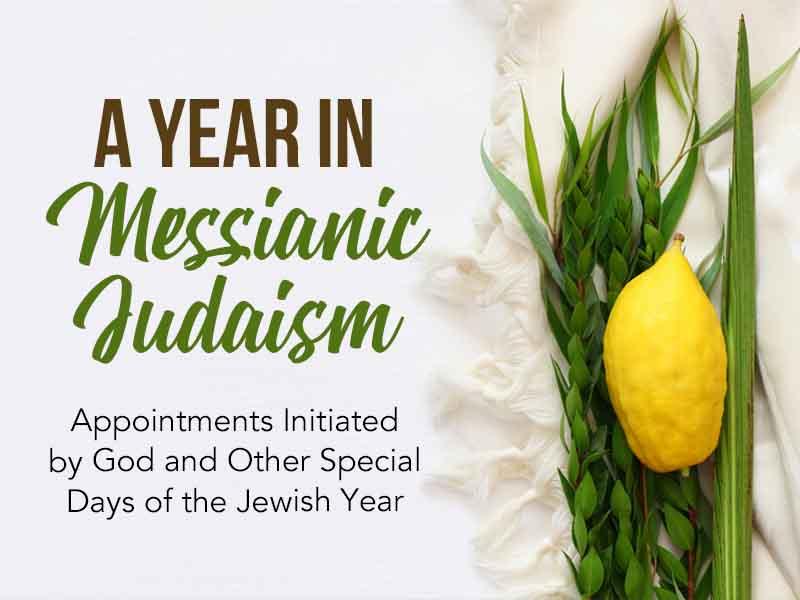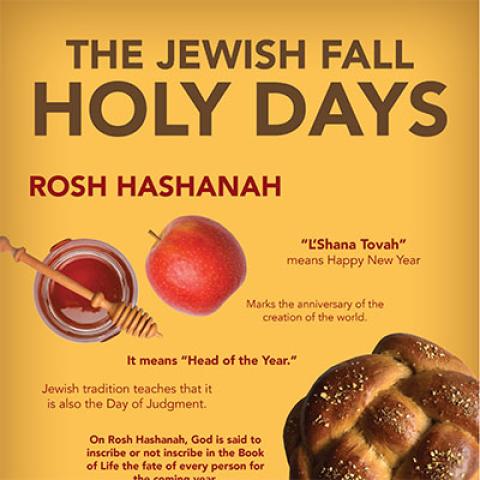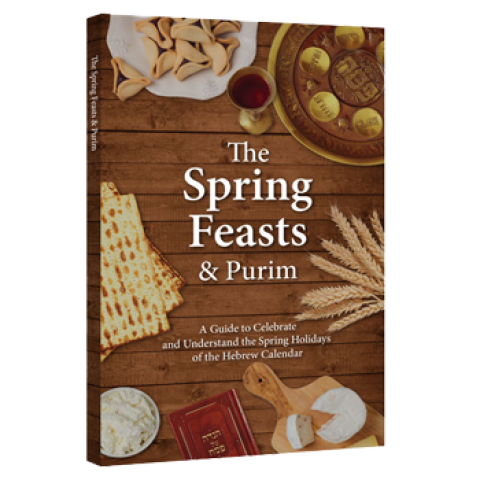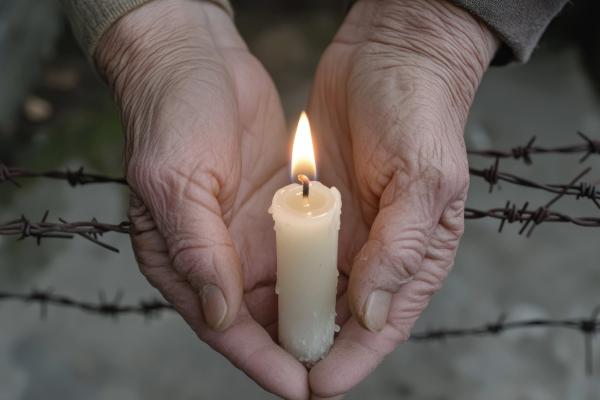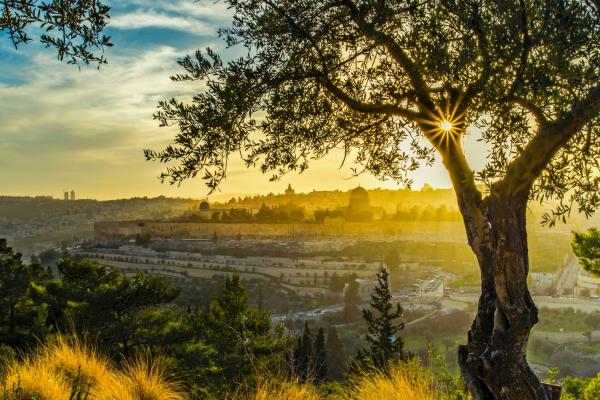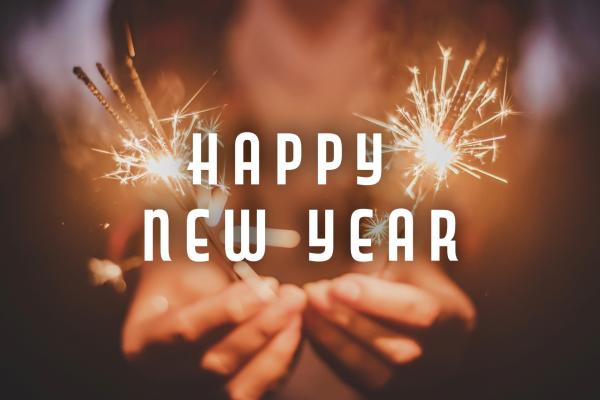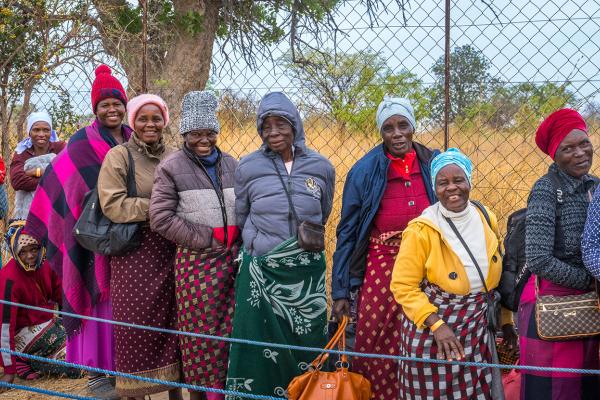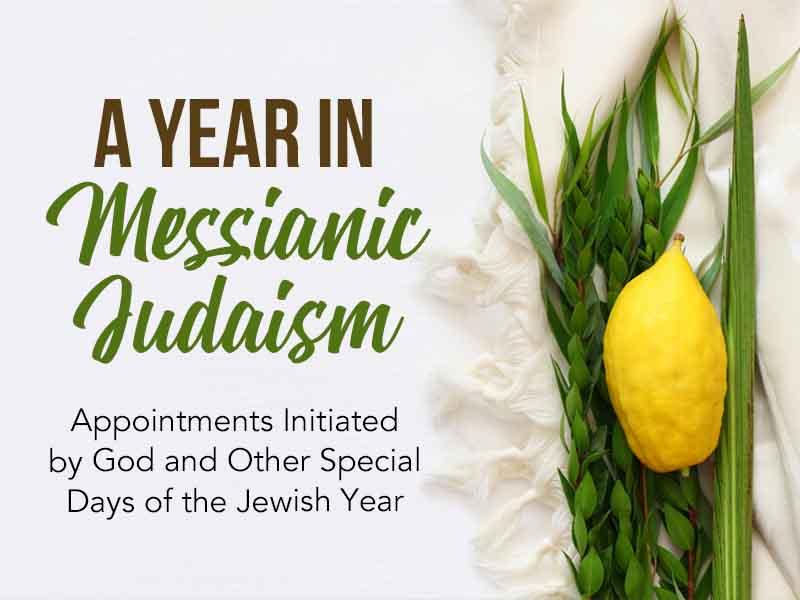
The rhythm of a year is established through changing seasons and the marking of special days. The biblical feasts that God commanded Israel to observe create the framework of a Jewish year. In Leviticus chapter 23, God called these holy days moadim (mo-eh-DEEM), or “appointed times.” They are appointments initiated by Him to meet with His people on special occasions throughout the year. These moadim form the life cycle of a year in Messianic Judaism, and are known to contain foreshadowing of events associated with the first and second comings of Yeshua (Jesus).
Common to Messianic Judaism is a deep love for Israel and what affects her as a nation, including her significant days of remembrance. Below is a brief look at the Jewish feasts and other holidays of note observed in Messianic Judaism.
Rosh Hashanah
Rosh Hashanah (ROSHE Hah-SHAH-nah) is the Jewish New Year. The Jewish religious year begins in the Hebrew month of Tishrei (TISH-ree), which, on the Gregorian calendar, falls in September or October. The Jewish year is calculated from what scholars believe is the year God created the world. Rosh Hashanah starts the evening of September 9 in 2018 and begins the year 5779 on the Jewish calendar.
Rosh Hashanah is associated with the biblical Feast of Yom Teruah (YOHM Tare-OO-ah), also known as the Feast of Trumpets commanded in Leviticus 23. Rosh Hashanah is a time of reflection, making amends and seeking God’s forgiveness to ensure a good new year. In Messianic Judaism, Yom Teruah is often associated with the initiation of the Messianic Age and the raising of the dead in Messiah.
See Leviticus 23:22‒25 and Numbers 29:1‒6.
Yom Kippur
Yom Kippur (YOHM Kip-POUR) is on the 10th day of Tishrei, in September or October. It is one of the biblically commanded Feasts and the holiest day of the Jewish year. It is the Day of Atonement when the High Priest would enter the Holy of Holies and make atonement for the sins of Israel. Today, as in ancient days, Yom Kippur is a day for “afflicting one’s soul” with fasting. With Temple sacrifices no longer possible, the focus of Yom Kippur is repentance and seeking God’s grace for a favorable new year.
Messianic Judaism recognizes a picture within Yom Kippur of Yeshua’s work of atonement as He offered His own blood for our sins. Yom Kippur will see its fulfillment with Yeshua’s (Jesus’) second coming when all the earth will recognize Him as the King of kings and Lord of lords and when all Israel embraces Him as the Messiah.
See Leviticus 23:26‒32 and Numbers 29:7‒11.
Sukkot
Sukkot (Soo-KOTE) is a week-long festival that begins on the 15th day of the Hebrew month of Tishrei occurring in September or October. It commemorates the 40 years of wilderness-living the Children of Israel experience and how God provided for them and dwelled with them during those years.
Sukkot means “booths” and the holiday is also called the Feast of Booths or Tabernacles. God’s instructions for this moad (MO-ed) include building a sukkah (SOUH-kah) – a booth – and dwelling in it for seven days. Today, Jewish people build these three-sided structures in their backyards or on apartment balconies. They decorate them, take their meals there and sometimes sleep in them.
See Leviticus 23:33‒43 and Numbers 29:12‒32.
Get the Fall Feasts Infographic
Discover the meaning and wonder of Rosh Hashanah, Yom Kippur, and Sukkot with this specially designed infographic.
Simchat Torah
Simchat Torah (SIM-khat TOR-ah) means “joy of the Torah.” The holiday occurs on the 23rd day of Tishrei in September or October. The holiday marks the completion of the annual Torah reading cycle.
The Torah contains the first five books of the Holy Scriptures and is Judaism’s most revered text. It is divided into weekly reading portions, and in this way, Jewish people read through the entire Torah each year. The annual schedule of readings ends on the morning of Simchat Torah and begins again that evening.
In Messianic Judaism, Simchat Torah is a time to rejoice also in God’s Word given through the remainder of the Tanakh (TAH-nahk) – the Old Covenant Scriptures – as well as the New Covenant writings and in Yeshua Himself, who is called the Word of God (Revelation 19:13).
Chanukah
Chanukah (HKHAH-noo-kah) is an eight-day festival that takes place in November or December. On the Hebrew calendar, it runs from the 25th day of the Hebrew month of Kislev to the second or third day of Trevet, depending on how many days Kislev has that year.
Chanukah is also called the Feast of Dedication and Festival of Lights. It commemorates the second-century rededication of the Temple after it had been desecrated by Antiochus IV. Chanukah means “dedication.”
Chanukah also celebrates a miracle of light. According to legend, there was not enough oil to burn the Temple menorah, and the Jewish people were eager to cleanse and rededicate their holy place of worship. They lit the menorah, and one day’s worth of oil burned for eight days until more was made and purified.
Chanukah is not one of the biblical feasts appointed by God and is not a major holiday in Judaism. However, those in Messianic Judaism see a clear correlation to the fact that Yeshua claimed to be the Light of the World.
See John 10:22 and John 8:12.
Purim
Purim (PURR-ihm) is not one of God’s appointed times outlined in the book of Leviticus. It takes place on the 14th and 15th of the month of Adar, which is in February or March on the Gregorian calendar. Purim is the most joyous and festive of the Jewish holidays. It celebrates the salvation of the Jewish people from a plot to annihilate them in the days when they were ruled by the King Ahasuerus of Persia.
God elevated Esther, a Jewish maiden, to the position of queen. She kept her Jewish identity secret until a wicked officer persuaded the king to sign an order that would mean the massacre of the Jewish people. Although God’s name does not appear in the book of Esther, His hand is clearly seen through His power and sovereignty to deliver His people.
See the book of Esther.
Passover & Feast of Unleavened Bread
In Hebrew, Passover is called Pesach (PAY-sakh). Passover is one day followed by the seven-day Feast of Unleavened Bread. The two holidays have come to be known collectively as Passover. Passover takes place from the 14th to the 21st of the Hebrew month of Nisan, occurring in March or April.
Passover is one of the most important holidays of the Jewish year. Ordained by God in Leviticus 23, it commemorates His deliverance of the Jewish people from bondage in Egypt. God instructed the Hebrew slaves to sacrifice a lamb and place its blood on the doorposts of their home. When the angel of death – the tenth and final plague God unleashed on Egypt – visited the land, he would see the blood and pass over their homes sparing them the death of their firstborn.
As part of observing the Feast of Unleavened Bread, God instructed the Jewish people to remove all chametz (khah-METZ) – leavening agents – from their homes and eat unleavened bread for seven days. This is done in remembrance of their ancestor’s hurried flight from Egypt that left no time for their bread to rise.
Passover is the first of the Spring Feasts, which each contain a foreshadowing of events that took place at Yeshua’s first coming. Yeshua – the Lamb of God – died on Passover, and Messianic Judaism recognizes Him in the same way the apostle Paul identified Him ‒ as “our Passover Lamb” who delivers us from bondage to sin. Also, the New Covenant likens sin to leaven and encourages us to remove it from our lives as we remove leaven from our homes at Passover (1 Corinthians 5:7‒8).
See Leviticus 23:5‒8 and Numbers 28:16‒25.
Firstfruits
The Feast of Firstfruits occurs during Passover week. It is in the Hebrew month of Nisan – March or April on the Gregorian calendar – and occurs the day after the first Sabbath of Passover. In Hebrew, it is called Bikkurim (Bee-kour-EEM). It is one of the annual, commanded Feasts of the Lord.
Bikkurim was an agricultural feast in which every physically able Jewish man was to bring the first of his barley harvest to the Temple as an offering to God. Contained in the Feast of Firstfruits is a prophetic picture of Yeshua who rose from the dead on this holy day. The apostle Paul identifies Him as the firstfruits of the coming resurrection.
See Leviticus 23:9–14.
Yom HaShoah
Yom HaShoah (YOHM Ha-SHO-ah) is Israel’s Holocaust Remembrance Day. Shoah means “catastrophe” or “calamity” and is the Hebrew name used when referring to the Holocaust.
Yom HaShoah occurs on the 27th day of the Hebrew month Nisan and occurs in April or May. The date was selected to commemorate the Warsaw Ghetto Uprising. Yom HaShoah is a day to remember those who died in the Holocaust as well as to honor survivors and those who fought for, hid and saved Jewish lives during World War II.
Yom HaZikaron
Yom HaZiraon (YOHM Ha-Zee-kar-OHN) is Israel’s Memorial Day in which the nation remembers those who gave their lives defending the fledgling nation of Israel in 1948 and protecting her sovereignty in battles since. It is a solemn day of remembrance occurring on the 4th day of the Hebrew month of Iyar, which falls in April or May.
Yom HaAtzmaut
Yom HaAtzmaut (YOHM Ha-AHTZ-mah-oot) is Israel’s Independence Day. It celebrates the day Israel became a nation in 1948. On the Gregorian calendar, the date back in 1948 was May 14. On the Hebrew calendar, it was the 5th of Iyar. The civic holiday falls in April or May on the Gregorian calendar.
It is significant to note that Israel’s Memorial Day, Yom HaZikaron, immediately precedes Independence Day. First, Israel honors those who gave their lives gaining and defending her freedom as a nation; then Israel celebrates her independence.
Israel’s overnight rebirth as a nation in 1948 fulfilled several Bible prophecies. See Ezekiel 37:10–14, Isaiah 66:8 and Ezekiel 37:21–22.
Yom Yerushalayim
Yom Yerushalayim (YOHM Yehr-OOO-shah-LYE-eem) means “Jerusalem Day.” The national holiday celebrates the day Jerusalem returned to Israel’s possession. In 1948, Jerusalem was divided and governed by both Israel and Jordan. During the Six-Day War, Jordan attempted to take over Israel’s portion of the city. However, Israel prevailed, and, after 2,000 years, the holy and eternal capital of Judaism returned fully to Israel. Jerusalem Day is the 28th day of the Hebrew month of Iyar, which occurs in May or June.
The Bible declares that for a time, Jerusalem would be “trampled by the Gentiles until the times of the Gentiles are fulfilled” (Luke 21:24). In Messianic Judaism, Jerusalem Day celebrates an exciting fulfillment of prophecy indicating the nearness of Yeshua’s return.
Shavuot
Shavuot (SHA-voo-ote) is one of the moadim commanded by God. It is also called the Feast of Weeks because it occurs after a count of seven weeks following Passover’s first Shabbat. It is 50 days after Passover, giving it another name ‒ Pentecost. Shavuot takes place on the 6th day of the Hebrew month Sivan and occurs in May or June on the Gregorian calendar.
Shavuot is one of three pilgrimage feasts that in ancient days was observed by traveling to Jerusalem. It is another holy day that required a firstfruits offering, this time of the wheat harvest. It also commemorates the giving of the Torah on Mt. Sinai and as such is a celebration of God’s selection of the Jewish people for Himself and the instruction He gave to help them follow Him.
On the Shavuot after Yeshua’s death and resurrection, God gave the Holy Spirit to Believers in Yeshua.
See Leviticus 23:15‒21 and Numbers 28:26‒31.
Get the The Spring Feasts and Purim Book
You’ll learn the history and prophetic significance of each Spring Feast and the meaning it holds today for Believers in Yeshua. Holiday recipes will help you celebrate the Springs Feasts and Purim. Discover what God’s appointed times hold in store for you.
Tisha B’Av
Tisha B’Av (TISH-ah Buh-AHV) is the 9th day of the Hebrew month Av. It is a day of mourning because both the first and second Temples were destroyed on this exact date in history. Many other catastrophes have happened to Israel and the Jewish people on this date across the centuries. Tisha B’Av occurs in July or August. It is a national day of observance in Israel and is acknowledged by Jewish people the world over as well as among those in Messianic Judaism.
Elul
Elul (Ee-LOOL) is a month on the Hebrew calendar falling around August or September. As it precedes the Jewish New Year, the month of Elul begins a season of reflection and repentance in preparation for the High Holy Days of Rosh Hashanah and Yom Kippur.
Shabbat
Shabbat (Shah-BAHT) ‒ the Sabbath ‒ is among many practices setting apart the Jewish people as God’s chosen people. Shabbat is a weekly commemoration of God’s rest after His creation work. God commanded its observance in both the 10 Commandments and the lists of His special appointed times, or moadim.
God instructed Israel to do no work on the seventh day of the week, which is Saturday on the Gregorian calendar. With a Jewish day beginning and ending at sunset, Shabbat starts on Friday evening and ends at sundown on Saturday.
See Exodus 20:8‒11, Leviticus 23:1‒3 and Numbers 28:9‒10.



